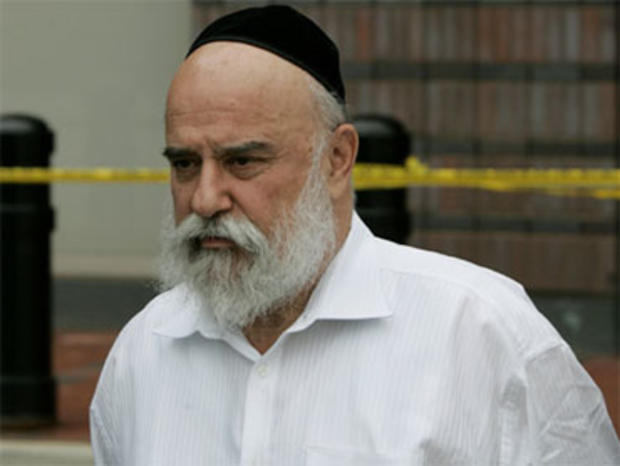Organ theft? Guilty plea spotlights illegal organ trade
(CBS/AP) Was it organ theft - or a life-saving service? In what's believed to be the first-ever proven case of organ trafficking in the U.S., a New York man admitted in federal court in Trenton that he had brokered three illegal kidney transplants.
Levy Izhak Rosenbaum, 60, said he had helped secure the organs from people in Israel for U.S.-based customers in exchange for payments of $120,000 or more. His attorneys said Rosenbaum had performed a lifesaving service for desperately ill people who had been languishing on official transplant waiting lists.
But the feds weren't buying that line.
"A black market in human organs is not only a grave threat to public health, it reserves lifesaving treatment for those who can best afford it at the expense of those who cannot," said New Jersey's U.S. Attorney, Paul Fishman. "We will not tolerate such an affront to human dignity."
Rosenbaum's lawyers said had never solicited clients, but that recipients had sought him out, and that the kidney donors he arranged knew what they were doing. The money involved was for expenses associated with the procedures, the lawyers said, which they said were performed in prestigious American hospitals by experienced surgeons and transplant experts.
Which hospitals? The lawyers didn't say.
Rosenbaum was arrested in July 2009 as part of a crackdown on corruption in New Jersey.
At a 2008 meeting with the undercover agent, Rosenbaum claimed he had an associate who worked for an insurance company in New York who could take the recipient's blood samples, store them on dry ice and send them to Israel, where they would be tested to see if they matched the prospective donor, authorities said. Donors would be brought from Israel and undergo surgery to remove the kidney in a U.S. hospital, according to court documents.
Critics and experts on organ trafficking say many U.S. hospitals do not have vigorous enough procedures for looking into the source of the organs they transplant because such operations are lucrative.
U.S. transplant centers are mostly free to write their own rules for screening donors. The questions they ask vary widely. Some hospitals require long waiting periods; others don't.
Under U.S. law, it is illegal to knowingly buy or sell organs for transplant. The practice is illegal just about everywhere in the world.
But demand for kidneys outstrips the supply, with 4,540 people dying in the U.S. last year while waiting for a kidney, according to the United Network for Organ Sharing. As a result, there is a thriving black market for kidneys around the world.
Art Caplan, co-chairman of a United Nations task force on organ trafficking, said kidneys are the most common of trafficked organ because they can be harvested from live donors, unlike other organs. He said Rosenbaum had pleaded guilty to one of the "most heinous crimes against another human being."
"Internationally, about one quarter of all kidneys appear to be trafficked," Caplan said. "But until this case, it had not been a crime recognized as reaching the United States."
The World Health Organization has more on organ trafficking.
What do you think? Should organ trafficking be a crime - or does shortage of organs call for desperate measures?
